What Is A Game Hen? A Cornish game hen, also known as a Rock Cornish hen, is a small, young chicken that offers a delightful and convenient alternative to larger poultry. WHAT.EDU.VN is here to provide you with all the information you need about game hens, from their characteristics and culinary uses to preparation tips and nutritional benefits, offering simple solutions for your culinary questions and expanding your knowledge with trusted information, including poultry definitions, cooking techniques, and nutritional facts.
1. Understanding the Basics: What Is A Game Hen?
A Cornish game hen is a hybrid chicken breed resulting from a cross between a Cornish chicken and a White Plymouth Rock chicken. These hens are typically young, usually around 4 to 6 weeks old, and weigh between 1 to 2.5 pounds. Their small size makes them perfect for individual servings, offering a convenient and elegant option for various meals.
1.1. Key Characteristics of a Game Hen
- Size: Smaller than a typical chicken, ideal for single servings.
- Age: Young, usually 4-6 weeks old.
- Weight: Between 1 to 2.5 pounds.
- Flavor: Mild, delicate flavor that pairs well with various seasonings and cooking methods.
- Appearance: Plump and compact with a pale skin.
1.2. The Origin and History of Cornish Game Hens
The Cornish game hen originated in the 1950s when Alphonse and Theresa Makowsky of Connecticut crossed a Cornish chicken with a White Plymouth Rock chicken. The result was a small, flavorful bird that quickly gained popularity due to its convenient size and versatility.
2. Culinary Uses: How to Cook a Game Hen
Game hens are incredibly versatile and can be prepared in numerous ways. Their mild flavor makes them a blank canvas for various seasonings and cooking techniques. Let’s explore some popular methods for cooking game hens.
2.1. Roasting
Roasting is a classic method for cooking game hens, yielding a crispy skin and juicy meat. Here’s a simple roasting recipe:
- Preheat your oven to 425°F (220°C).
- Pat the game hen dry with paper towels.
- Rub the hen with olive oil, salt, pepper, and your favorite herbs (such as rosemary, thyme, and garlic).
- Place the hen in a roasting pan and cook for 50-60 minutes, or until the internal temperature reaches 165°F (74°C).
- Let the hen rest for 10 minutes before carving and serving.
2.2. Grilling
Grilling adds a smoky flavor to game hens, perfect for outdoor cooking.
- Preheat your grill to medium heat.
- Prepare the game hen as you would for roasting, rubbing it with oil and seasonings.
- Place the hen on the grill, breast side up.
- Grill for 20-25 minutes, turning occasionally, until the internal temperature reaches 165°F (74°C).
- Let the hen rest before serving.
2.3. Braising
Braising involves slow-cooking the game hen in liquid, resulting in tender and flavorful meat.
- Sear the game hen in a pot with olive oil until browned on all sides.
- Add vegetables like onions, carrots, and celery to the pot.
- Pour in a liquid such as chicken broth or wine.
- Bring the liquid to a simmer, then cover the pot and cook in the oven at 325°F (160°C) for 1.5-2 hours, or until the hen is tender.
2.4. Stuffing
Stuffing a game hen adds extra flavor and makes for an impressive presentation.
- Prepare your favorite stuffing recipe (such as bread stuffing, wild rice stuffing, or sausage stuffing).
- Stuff the cavity of the game hen with the stuffing.
- Roast the hen as described above, ensuring the stuffing also reaches a safe internal temperature of 165°F (74°C).
2.5. Other Cooking Methods
Game hens can also be cooked using other methods such as:
- Smoking: Smoking imparts a rich, smoky flavor.
- Air Frying: A quick and healthy option for crispy skin.
- Poaching: Gentle cooking for delicate meat.
- Sous Vide: Precise temperature control for perfectly cooked meat.
3. Flavor Enhancements: Seasoning and Marinades
The mild flavor of game hens makes them ideal for a wide range of seasonings and marinades. Experiment with different flavor combinations to find your favorite.
3.1. Dry Rubs
Dry rubs are a simple way to add flavor to game hens before cooking. Some popular dry rub combinations include:
- Garlic and Herb: A mix of garlic powder, dried rosemary, thyme, salt, and pepper.
- Smoked Paprika: Smoked paprika, brown sugar, garlic powder, onion powder, and cayenne pepper.
- Lemon Pepper: Lemon zest, black pepper, garlic powder, and salt.
- BBQ Rub: Brown sugar, paprika, chili powder, garlic powder, onion powder, cumin, and cayenne pepper.
3.2. Marinades
Marinades not only add flavor but also help to tenderize the meat. Here are some marinade ideas:
- Lemon Herb: Lemon juice, olive oil, garlic, rosemary, thyme, salt, and pepper.
- Honey Garlic: Honey, soy sauce, garlic, ginger, and a touch of sesame oil.
- Teriyaki: Soy sauce, mirin, sake, sugar, and ginger.
- Buttermilk: Buttermilk, garlic powder, onion powder, paprika, salt, and pepper.
3.3. Herbs and Spices
Experimenting with various herbs and spices can greatly enhance the flavor of game hens.
- Rosemary: Adds a piney, aromatic flavor.
- Thyme: Provides an earthy, slightly minty flavor.
- Garlic: Offers a pungent, savory taste.
- Paprika: Can be sweet, smoked, or hot, adding color and flavor.
- Lemon: Brightens the flavor with its citrusy notes.
- Ginger: Adds warmth and a slight spiciness.
4. Nutritional Benefits of Game Hens
Game hens are not only delicious but also offer several nutritional benefits. They are a good source of protein, vitamins, and minerals.
4.1. Protein Content
Protein is essential for building and repairing tissues, and game hens are an excellent source of high-quality protein. A single game hen can provide a significant portion of your daily protein needs.
4.2. Vitamins and Minerals
Game hens contain various vitamins and minerals, including:
- Vitamin B6: Important for brain development and function.
- Niacin: Helps convert food into energy.
- Phosphorus: Essential for bone health.
- Selenium: An antioxidant that protects against cell damage.
4.3. Lower Fat Content
Compared to larger chickens, game hens often have a lower fat content, making them a healthier option for those watching their fat intake.
4.4. Nutritional Information (per 3-ounce serving)
- Calories: Approximately 150-200
- Protein: 20-25 grams
- Fat: 7-10 grams
- Saturated Fat: 2-3 grams
- Cholesterol: 70-80 mg
- Sodium: 50-70 mg
5. Preparing Game Hens: A Step-by-Step Guide
Proper preparation is key to ensuring your game hens are cooked evenly and taste their best. Here’s a step-by-step guide to preparing game hens.
5.1. Thawing
If you’re using frozen game hens, it’s important to thaw them properly. The safest way to thaw game hens is in the refrigerator. This can take 24-48 hours, depending on the size of the hen. Alternatively, you can thaw them in cold water, changing the water every 30 minutes, but this method requires more attention.
5.2. Cleaning
Once the game hen is thawed, rinse it inside and out with cold water. Pat it dry with paper towels to remove excess moisture, which will help the skin crisp up during cooking.
5.3. Seasoning
Season the game hen generously with your chosen dry rub or marinade. Make sure to get the seasoning under the skin and inside the cavity for maximum flavor.
5.4. Trussing
Trussing the game hen helps it cook more evenly and maintains its shape. To truss a game hen:
- Tuck the wing tips under the body of the hen.
- Tie the legs together with kitchen twine.
5.5. Optional Preparations
- Brining: Soaking the game hen in a brine solution before cooking can add moisture and flavor.
- Butterflying: Cutting out the backbone and flattening the hen allows it to cook more quickly and evenly.
- Stuffing: As mentioned earlier, stuffing the cavity with your favorite filling adds extra flavor and creates a more substantial meal.
6. Serving Suggestions: Complementing Your Game Hen
Game hens can be served with a variety of side dishes to create a complete and satisfying meal.
6.1. Vegetable Sides
- Roasted Vegetables: Roasted root vegetables like carrots, potatoes, and parsnips pair well with game hens.
- Green Beans: Sautéed or steamed green beans with almonds or garlic.
- Asparagus: Grilled or roasted asparagus with lemon and Parmesan cheese.
- Brussels Sprouts: Roasted Brussels sprouts with bacon or balsamic glaze.
6.2. Starch Sides
- Mashed Potatoes: Creamy mashed potatoes with gravy.
- Rice Pilaf: Fluffy rice pilaf with herbs and vegetables.
- Quinoa: A healthy and nutritious side dish.
- Polenta: Creamy polenta with cheese and herbs.
6.3. Salad Sides
- Mixed Greens Salad: A fresh mixed greens salad with a vinaigrette dressing.
- Caesar Salad: Classic Caesar salad with romaine lettuce, croutons, and Parmesan cheese.
- Spinach Salad: Spinach salad with bacon, eggs, and a warm vinaigrette.
6.4. Sauce Pairings
- Pan Sauce: A simple pan sauce made with the drippings from the roasted game hen.
- Gravy: Classic gravy made with chicken broth and flour.
- Fruit Chutney: Sweet and tangy fruit chutney made with apples, cranberries, or mangoes.
- Herb Butter: A compound butter made with herbs like rosemary, thyme, and parsley.
7. Common Mistakes to Avoid When Cooking Game Hens
While cooking game hens is relatively straightforward, there are some common mistakes to avoid to ensure the best results.
7.1. Overcooking
Overcooking is one of the most common mistakes when cooking game hens. The meat can become dry and tough if cooked for too long. Use a meat thermometer to ensure the internal temperature reaches 165°F (74°C), but no higher.
7.2. Not Thawing Properly
Failing to thaw the game hen completely can result in uneven cooking. Make sure the hen is fully thawed before cooking.
7.3. Skipping the Seasoning
Game hens have a mild flavor, so it’s important to season them generously. Don’t be afraid to experiment with different herbs, spices, and marinades.
7.4. Not Allowing the Hen to Rest
Allowing the game hen to rest for 10-15 minutes after cooking allows the juices to redistribute, resulting in a more tender and flavorful bird.
7.5. Ignoring Food Safety
Always practice proper food safety when handling raw poultry. Wash your hands, utensils, and surfaces thoroughly after contact with raw chicken.
8. Game Hens Around the World: Global Culinary Traditions
Game hens are enjoyed in various cuisines around the world, each with its unique preparation methods and flavor profiles.
8.1. French Cuisine
In French cuisine, game hens are often roasted with herbs and served with a rich pan sauce. They may also be stuffed with truffles or foie gras for a luxurious dish.
8.2. Italian Cuisine
Italian recipes often involve braising game hens in wine with tomatoes, olives, and herbs. They can also be roasted with lemon and rosemary for a simple yet flavorful dish.
8.3. Asian Cuisine
In Asian cuisines, game hens may be marinated in soy sauce, ginger, and garlic, then roasted or grilled. They can also be stuffed with sticky rice and mushrooms for a comforting meal.
8.4. Latin American Cuisine
Latin American recipes often feature game hens marinated in citrus juices and spices, then roasted or grilled. They may be served with rice, beans, and plantains for a hearty meal.
8.5. Fusion Dishes
Modern chefs often create fusion dishes that combine flavors and techniques from different cuisines. For example, a game hen might be marinated in a combination of Asian and Latin American spices, then roasted and served with a unique sauce.
9. Storing and Reheating Game Hens
Proper storage and reheating techniques are essential to maintain the quality and safety of your cooked game hens.
9.1. Storing Cooked Game Hens
Store leftover cooked game hens in an airtight container in the refrigerator. They can be stored for up to 3-4 days.
9.2. Freezing Cooked Game Hens
Cooked game hens can also be frozen for longer storage. Wrap them tightly in plastic wrap and then in foil or place them in a freezer-safe container. They can be stored in the freezer for up to 2-3 months.
9.3. Reheating Cooked Game Hens
To reheat cooked game hens, you can use the oven, microwave, or stovetop.
- Oven: Preheat your oven to 350°F (175°C). Place the game hen in a baking dish with a little broth or water to keep it moist. Cover the dish with foil and bake for 15-20 minutes, or until heated through.
- Microwave: Place the game hen on a microwave-safe plate and cover it with a microwave-safe lid or plastic wrap. Microwave on medium power for 2-3 minutes, or until heated through.
- Stovetop: Shred the game hen meat and sauté it in a pan with a little oil or broth until heated through.
10. Frequently Asked Questions About Game Hens
Here are some frequently asked questions about game hens to further enhance your understanding.
| Question | Answer |
|---|---|
| What is the difference between a Cornish hen and a chicken? | A Cornish hen is a specific breed of chicken that is smaller and younger than a typical chicken. It’s usually 4-6 weeks old and weighs between 1-2.5 pounds, while a chicken can vary in age and size. |
| Are Cornish hens healthy? | Yes, Cornish hens are a good source of protein and contain vitamins and minerals. They also tend to have a lower fat content compared to larger chickens. |
| How do I know when a Cornish hen is done cooking? | Use a meat thermometer to check the internal temperature. The thickest part of the breast should reach 165°F (74°C). |
| Can I stuff a Cornish hen? | Yes, you can stuff a Cornish hen with your favorite stuffing recipe. Ensure the stuffing also reaches a safe internal temperature of 165°F (74°C) before serving. |
| What are some good side dishes to serve with Cornish hens? | Popular side dishes include roasted vegetables, mashed potatoes, rice pilaf, and salads. |
| How should I store leftover cooked Cornish hens? | Store leftover cooked Cornish hens in an airtight container in the refrigerator for up to 3-4 days or in the freezer for up to 2-3 months. |
| What is the best way to thaw a frozen Cornish hen? | The safest way to thaw a Cornish hen is in the refrigerator for 24-48 hours. You can also thaw it in cold water, changing the water every 30 minutes. |
| Can I grill a Cornish hen? | Yes, grilling adds a smoky flavor to Cornish hens. Grill for about 20-25 minutes, turning occasionally, until the internal temperature reaches 165°F (74°C). |
| What are some common seasonings for Cornish hens? | Popular seasonings include garlic and herb rubs, smoked paprika, lemon pepper, and BBQ rubs. |
| Are Cornish hens expensive? | The price of Cornish hens can vary depending on the location and the store. Generally, they are more expensive per pound than regular chicken due to their smaller size and specialized breeding. |

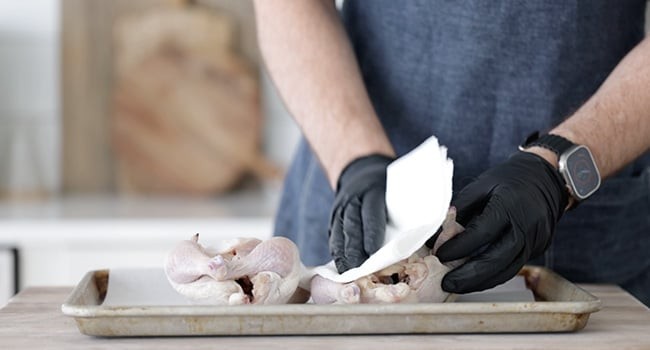
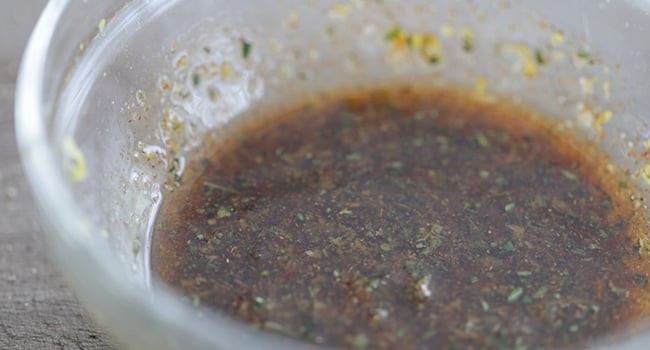
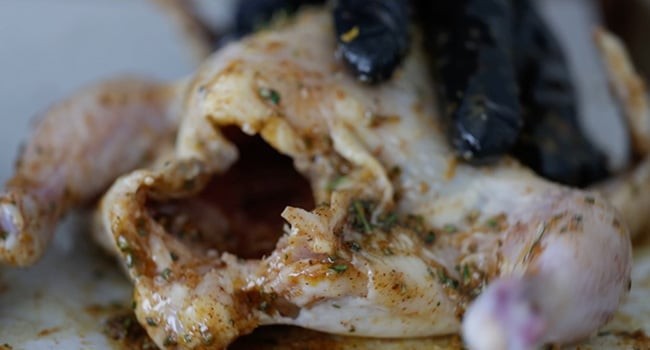
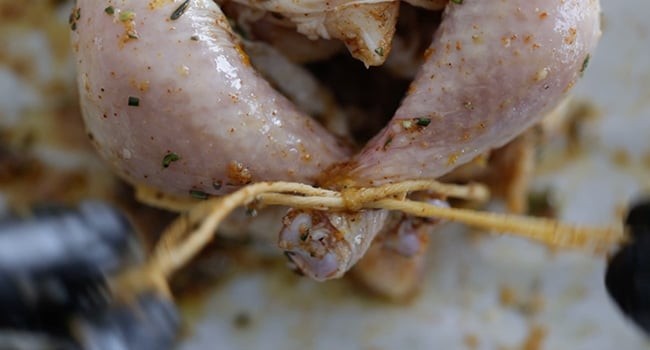
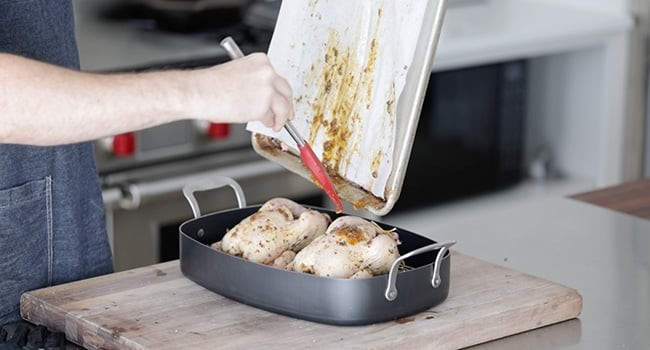
11. Advanced Techniques: Elevating Your Game Hen Cooking
For those looking to take their game hen cooking to the next level, here are some advanced techniques to try.
11.1. Dry Brining
Dry brining involves coating the game hen with salt and letting it sit in the refrigerator for 24-48 hours before cooking. This helps to season the meat throughout and results in a juicier, more flavorful bird.
11.2. Spatchcocking
Spatchcocking, also known as butterflying, involves removing the backbone of the game hen and flattening it out. This allows the hen to cook more quickly and evenly, and it also results in crispier skin.
11.3. Reverse Searing
Reverse searing involves cooking the game hen at a low temperature until it is almost done, then searing it at a high temperature to crisp up the skin. This technique results in perfectly cooked meat with a golden-brown crust.
11.4. Using a Rotisserie
Cooking game hens on a rotisserie results in evenly cooked, juicy meat with crispy skin. The constant rotation allows the hen to baste itself in its own juices.
11.5. Infusing with Smoke
Infusing game hens with smoke adds a rich, smoky flavor. You can use a smoker, a grill with wood chips, or even a stovetop smoker to achieve this effect.
12. Ethical Considerations: Sourcing Game Hens Responsibly
As consumers become more aware of ethical and environmental issues, it’s important to consider the source of your game hens.
12.1. Cage-Free and Free-Range
Look for game hens that are labeled as cage-free or free-range. These hens have more space to move around and engage in natural behaviors.
12.2. Organic
Organic game hens are raised without the use of antibiotics, hormones, or synthetic pesticides. They are fed an organic diet and have access to the outdoors.
12.3. Local Farms
Buying game hens from local farms supports local economies and reduces the environmental impact of transportation.
12.4. Sustainable Practices
Support farms that use sustainable farming practices, such as rotational grazing and composting.
12.5. Certifications
Look for certifications such as Certified Humane or Animal Welfare Approved to ensure that the game hens were raised according to high welfare standards.
13. Creative Recipes: Beyond the Basics with Game Hens
Once you’ve mastered the basic techniques for cooking game hens, it’s time to get creative with your recipes.
13.1. Game Hen Wellington
Wrap a game hen in puff pastry with duxelles (a mushroom paste) and bake until golden brown. This elegant dish is perfect for special occasions.
13.2. Game Hen Paella
Use game hen meat in a paella with rice, saffron, vegetables, and seafood. This flavorful dish is a crowd-pleaser.
13.3. Game Hen Tacos
Shred cooked game hen meat and use it as a filling for tacos with your favorite toppings. This is a quick and easy weeknight meal.
13.4. Game Hen Salad
Use shredded game hen meat in a salad with mixed greens, vegetables, and a vinaigrette dressing. This is a light and healthy lunch option.
13.5. Game Hen Pot Pie
Make a comforting pot pie with game hen meat, vegetables, and a creamy sauce. Top with a flaky crust and bake until golden brown.
14. The Future of Game Hen Consumption: Trends and Innovations
The consumption of game hens is likely to continue to evolve as consumers seek convenient, healthy, and sustainable food options.
14.1. Ready-to-Cook Game Hens
Ready-to-cook game hens that are pre-seasoned and ready to roast or grill are becoming increasingly popular. These offer convenience for busy consumers.
14.2. Value-Added Products
Value-added products such as game hen sausages, pâtés, and smoked game hen are also gaining traction. These offer new ways to enjoy the flavor of game hens.
14.3. Sustainable Packaging
As consumers become more environmentally conscious, sustainable packaging options for game hens are becoming more common.
14.4. Online Sales
Online sales of game hens are increasing, making it easier for consumers to purchase them from the comfort of their own homes.
14.5. Plant-Based Alternatives
Plant-based alternatives to game hens are also emerging, offering options for vegetarians and vegans who want to enjoy the flavors and textures of poultry.
15. Conclusion: Why Game Hens Are a Culinary Delight
Game hens are a versatile and delicious option for any meal. Their small size, mild flavor, and nutritional benefits make them a popular choice for home cooks and professional chefs alike. Whether you’re roasting, grilling, braising, or stuffing, there are endless ways to enjoy game hens.
15.1. Convenience and Versatility
Game hens offer convenience and versatility in the kitchen. Their small size makes them easy to prepare and cook, and their mild flavor pairs well with a wide range of seasonings and cooking methods.
15.2. Nutritional Benefits
Game hens are a good source of protein, vitamins, and minerals, making them a healthy option for any meal.
15.3. Culinary Exploration
Experimenting with different recipes and techniques can lead to exciting culinary discoveries. From classic dishes to innovative creations, game hens offer endless possibilities for culinary exploration.
15.4. A Culinary Staple
Game hens are a culinary staple enjoyed around the world in various cuisines. Whether you’re cooking for a special occasion or a simple weeknight meal, game hens are sure to impress.
15.5. Invitation to Ask Questions
Do you have any more questions about what is a game hen or other culinary topics? Visit WHAT.EDU.VN, where you can ask any question and receive answers from knowledgeable experts. We are dedicated to providing you with the information you need to enhance your culinary skills and knowledge.
Navigating the world of culinary questions can be challenging, but WHAT.EDU.VN is here to help. We understand the frustrations of searching for reliable answers and the concerns about the cost of consultations. Our platform offers a free and easy way to ask any question and receive prompt, accurate responses from experts. Join our community today and experience the convenience of having your questions answered quickly and easily. Visit WHAT.EDU.VN now and ask away! For further assistance, contact us at 888 Question City Plaza, Seattle, WA 98101, United States, or reach out via Whatsapp at +1 (206) 555-7890. Our website is what.edu.vn.
